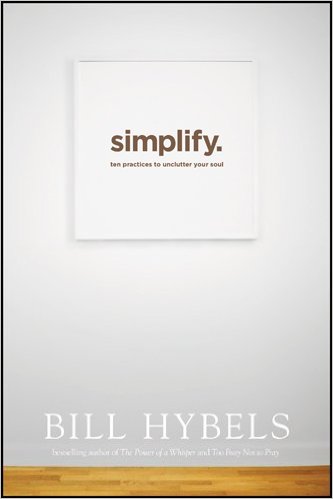Click here to return to Blog Post Intro

1. From Exhausted to Energized: Replenishing Your Energy Reserves
When Jesus says, “Martha, Martha,” he essentially says, “Easy does it, Martha. Take a chill pill.” Then, with genuine kindness, He makes an observation: “You are worried and upset about many things.” He can tell she’s overwhelmed, overscheduled, and exhausted—the very words that define our culture.
Jesus strikes a different note in His response to Martha’s activism. “In all your activity,” He says, “don’t lose sight of relationship.” Unrushed. Unhurried. Let’s sit down and get caught up with each other. Relationship.
Jesus told Martha that her only hope was to pull up a chair, unplug from all the busyness, and begin a conversation with the only one who could restore her frenetic heart, settle her spirit, and get her heading back to true north. Is the same true for you?
What sorts of things fill your bucket? What refuels you? What activities or engagements restore your energy levels? What do you need to do to start pouring new streams of replenishment into your badly depleted life? What relationships inspire you? What do you read that elevates your perspective? What in your life is actually a bucket-filler for you?
Hybels provides five keys to replenishment:
1. Connecting with God: Hybels explains that when he’s really connected with God, he’s far less concerned about other people’s opinions or their plans and expectations. Instead, he stays on God’s agenda.
Spending time with God each day is the antidote to one energy-killer in particular: image management. Many of us drain an exorbitant amount of energy from our buckets by constantly maintaining our personal image.
2. Family
3. Satisfying Work: As King Solomon says, “It is good and proper for people to find satisfaction—replenishment—in their labor.”
When Hybels sees people who are consistently filled up, he often discovers they’re quite satisfied with what they do vocationally. God, in His love for you, would love for your job to be a bucket-filler and not a bucket-drainer.
4. Recreation: Recreation literally means to re-create energy and vitality in your inner person.
5. Exercise: Most experts agree: Exercise and proper rest patterns give about a 20% energy increase in an average day, average week, average month.
2. From Overscheduled to Organized: Harnessing Your Calendar’s Power
Hybels notes that no matter where he is in the world, he hears a common complaint: “I’m overscheduled.” “I don’t have time.” “I’m too busy.”
A runaway calendar will keep you from simplifying your life. News flash: You are the boss of your schedule. It’s your responsibility to keep command of your calendar—and you must, in order to simplify your life.
Your calendar is more than merely an organizer for what needs to get done; it’s the primary tool for helping you become who you want to become as a person, as a family member, and as a friend.
To create a schedule that reflects your most important life goals, you must begin with the right question. The question isn’t, “What do I want to get done in the next thirty days?” but, “Who do I want to become in this next season of my life?” Once we answer that key question, calendars and schedules are terrific tools for helping us accomplish our life goals, both interpersonal and practical.
By utilizing your schedule as a holistic tool for all areas of your life, you can ensure that each square on your calendar is centered on things that matter to you, rather than being consumed month in, month out by the same time-suckers that leave you feeling overscheduled and exhausted.
Do you keep healthy boundaries by not allowing work to leak into your home hours? If not, use your calendar to make those adjustments. For Hybels, he started putting on his schedule, “Home” for time to be at home…away from work…
It’s too easy to fill our schedules with things that don’t matter—and neglect the things that do. Simplified living requires purposeful stewardship of each day.
3. From Overwhelmed to In Control: Mastering Your Finances
There is no way to simplify your life if your relationship with money is out of control. Judging by the sheer number of verses the Bible dedicates to money, it’s obvious that a right relationship with our finances is of great importance to God.
Here are five ways to think about money and put it in its proper context:
1: All I Have Comes from God.
2: I Live Joyfully Within God’s Current Provision for My Life. In America, we enjoy greater wealth per capita than most countries. We have more opportunity for education, medical care, home ownership, car ownership, food availability, freedoms, and so on. But a 2012 Gallup Poll ranked the United States thirty-third in the world on a happiness scale. It’s been proven over and over again—from King Solomon on—having more doesn’t increase our happiness.
You will only know true financial peace when you learn to live joyfully beneath God’s provision in every season of your life.
3: I Honor God by Giving the First Tenth of All My Earnings to His Purposes in the World.
4: I Set Aside a Portion of All My Earnings into a Savings Account for Emergencies, Giving Opportunities, and My Later Years. Following a 10-10-80 principle prepares you well for whatever wintertimes come your way. Set aside the first 10% for God’s purposes; Save the next 10% for emergencies, giving opportunities, and my future; and Live on the 80% that remains. This brings simplicity to life.
5: I Live Each Day with an Open Ear toward Heaven, Eager to Respond to Any Whisper from God regarding My Resources. God wants you to experience the privilege of watching your resources help other people—there’s nothing else like it.
Hybels encourages readers to create margin between God’s provision and spending—and live with contentment and peace for the rest of your life. By committing to the first four beliefs of financial reconciliation, you create financial margin that helps you respond to God’s guidance when it comes to allocating your resources.
4. From Restless to Fulfilled: Refining Your Working World
One of the greatest blessings in life is to love your work, to be satisfied in your daily labors. How do you find a job you will love so much that it actually simplifies your life?
1: Passion: King David reminds us we are “fearfully and wonderfully made.” Somewhere in everybody’s hardwiring is a passion for something. By clearly identifying our God-given passions and finding jobs that align with them as closely as possible, we can put ourselves in position for great job—and life—satisfaction.
2: Culture: Aligning our jobs with our passions isn’t the only alignment that matters. The culture of your work environment also plays a vital role in creating true satisfaction and fulfillment.
Leadership consultant Mark C. Crowley describes it this way: “Imagine a crew team out on the Potomac River where three people are rowing their hearts out, five are taking in the scenery, and two are trying to sink the boat.”
3: Challenge: When Hybels mentors leaders, he often asks, “At what challenge level do you do your best work?” The optimal answer is “Appropriately Challenged–Plus.” Believe it or not, you do your best work just above the “appropriately challenged” level, as you inch toward the low end of “dangerously over-challenged,” but before you dip into the danger zone.
4: Compensation: There’s an exchange that occurs in every employment situation: You put in the labor, and the company pays you wages. Jesus said it this way: “The worker deserves his wages.” Follow these equations:
- Low Pay + High Passion = Supplement Your Income. Some people choose to stay in lower-paying jobs that align with their passions and then figure out creative ways to supplement their income.
- High Pay + Low Passion = Supplement Your Passion. People who work in higher-paying but less-enjoyable jobs can find ways to supplement their satisfaction levels by doing volunteer work that fills them with joy.
You’re going to spend at least a third of your life at work, so why not look for a job that will align your passion, culture, challenge, and compensation needs?
5. From Wounded to Whole: Making Room for Forgiveness
No one understood the cost of broken relationships better than Jesus. In fact, in one of His final prayers, as He hung dying on the cross, Jesus offered words of reconciliation to the very people who had unjustly accused and convicted Him—the people who were killing Him: “Father, forgive them; for they know not what they do.”
In Matthew 18:15, Jesus outlines what to do in situations when you’ve been wronged. “If your brother or sister sins, go and point out their fault.” If there’s a relational rift, no matter who caused it—you go. You take the first step.
- Go alone. Furthermore in Matthew 18:15, Jesus says, “Go. Go in private. And go to set things right, to restore the relationship.”
- Go to reconcile the relationship. When Jesus instructs us to go in private to someone who has offended us, He has a goal in mind: to reconcile the relationship. “If they listen to you, you have won them over,” He says.
- Let it go. Sometimes you can do everything right—you go, go alone, go to restore the relationship, and go now—but the other person won’t reconcile.
Romans 12:18 provides a good general guideline:
6. From Anxious to Peaceful: Conquering Your Fears
Fear is the fundamental barrier to peace, and it’s a deal-breaker when it comes to leading a simplified life. Perhaps you’ve experienced one of these common peace busters: financial pressure, relational breakdown, unexpected bad news, moral failure, impending mortality.
The apostle Paul, in a letter to his protégé Timothy, writes, “God has not given us a spirit of fear and timidity, but of power, love, and self-discipline.”
Studies show that avoiding our fears only causes them to escalate. Experts in the field of fear management agree that the power of fear begins to diminish when a person takes the time to understand its origins, expose its lies, and face it head-on.
7. From Isolated to Connected: Deepening Your Relational Circles
Friendship can be defined like this: to know and be known. Knowing and being known; accepting and being accepted; loving and being loved; serving and being served; celebrating and being celebrated. These are the hallmark ingredients of a true friendship.
True friends serve one another. You do what is best for your friends above what is best for yourself. What Solomon says is absolutely true: “Walk with the wise and become wise, for a companion of fools suffers harm.” When we surround ourselves with foolish people, we become like them. And when we surround ourselves with wise, mature, good people, their high character rubs off on us too.
Solomon lists seven character traits that are so offensive to God, they should act as red warning lights, flashing “Danger!” when we spot them in a friend or acquaintance. His list is helpful when assessing the character of those in your friendship circle: “There are six things the Lord hates, seven that are detestable to him: haughty eyes, a lying tongue, hands that shed innocent blood, a heart that devises wicked schemes, feet that are quick to rush into evil, a false witness who pours out lies and a person who stirs up conflict in the community.”
If you’re looking for people whose character will rub off on you in a positive way, Paul’s list of the Fruit of the Spirit is a great place to start: love, joy, peace, patience, kindness, goodness, faithfulness, gentleness, self-control.
Jesus’ Relational Circles: 72-12-3-3
Jesus set a precedent for us and showed us how to border friendships and maintain healthy friendship circles. He had a large circle of friends—at least seventy-two who were close enough to be called disciples. He hand-selected twelve disciples to be His “small group.”
Then, Jesus had two inner circles of friends—the men and women who knew Him best. His first inner circle included Peter, James, and John, His three closest friends. He was still close to the other nine, but He chose the three. And He held to that decision.
His second inner circle was with three siblings—Mary, Martha, and Lazarus.
8. From Drifting to Focused: Claiming God’s Call on Your Life
Over the years, Hybels has encouraged Christ followers to adopt a life verse as a tool to help them stay centered on God’s call in their lives; and by many reports, having such a verse has borne much fruit. His life verse is 1 Corinthians 15:58: Therefore, be steadfast, immovable, always abounding in the work of the Lord, knowing that your work is never in vain if it is in the Lord.
Having a life verse is one of the most powerful tools for simplifying your life. Like a lighthouse in the darkness, it keeps you on course.
This action step is a no-brainer: Find a life verse. And use it. When I (Brady) read this, I chose Philippians 2:3 for this season in my life, “Do nothing out of selfish ambition or vain conceit. Rather, in humility value others above yourselves.” This helps me focus on serving others in my various life roles…
9. From Stuck to Moving On: Welcoming New Seasons in Your Life
If you consider the seasons of your life through the landscape of eternity, this is key to simplifying your life. Good or bad, easy or difficult, every season on this earth is temporary. For the sake of further exploration, look at a few of the 28 seasons Solomon mentions in Ecclesiastes 3.
If you’re a Christ follower, God is continually working to refine your character and make you more like Jesus. He has good lessons to teach you, especially in the uncomfortable, restless, painful seasons of your life. What are those lessons?
Recognizing the season you’re in helps to simplify your life by giving you a tangible target on which to focus your growth, energies, and direction. When you think your current season is more than you can bear, listen for God’s whisper: “My grace is sufficient for you, for my power is made perfect in weakness.”
10. From Meaningless to Satisfied: The Legacy of a Simplified Life
Solomon sums up his worldly attempts at filling the void in his life: “I denied myself nothing my eyes desired; I refused my heart no pleasure. My heart took delight in all my labor, and this was the reward for all my toil. Yet when I surveyed all that my hands had done and what I had toiled to achieve, everything was meaningless, a chasing after the wind; nothing was gained under the sun.” There are seven common paths for “wind chasing”: Physical Health & Longevity; Education; Pleasure; Work; Wealth; Sex; and Fame.
There’s no point in simplifying your life if you are steering toward an end point that doesn’t matter to begin with. Scripture records Solomon’s hedonistic odyssey to help us avoid wasting our lives like he did. We have the option of learning from his mistakes.
Consider using these three filters for every opportunity, commitment, and relational investment:
- Satisfaction: Will it bring true satisfaction?
- Purpose: Does it align with God’s purpose for your life in this season?
- Significance: Does it help you lead a life of significance? By keeping your eye on the eternal horizon, you can filter out those things that hold only temporal value.
When you get to the end of your life, you will no doubt ask yourself these two questions: Am I right with my family? Am I right with my Maker?
Simplifying is not merely intended to make your life easier—like uncluttering a drawer or closet might. You simplify your life for reasons that matter for eternity: to give clarity, purpose, and power to the things that matter most in this world.
Solomon ends the book of Ecclesiastes with this cut-to-the-chase conclusion: “Now all has been heard; here is the conclusion of the matter: Fear God and keep his commandments, for this is the duty of all mankind.” This is what life is all about.
Hybels finishes his book with one final admonition: Write one clear sentence that describes a life that would leave you satisfied on your final day. If it helps, use this sentence-starter as a prompt: “I am satisfied with my life when . . .”



